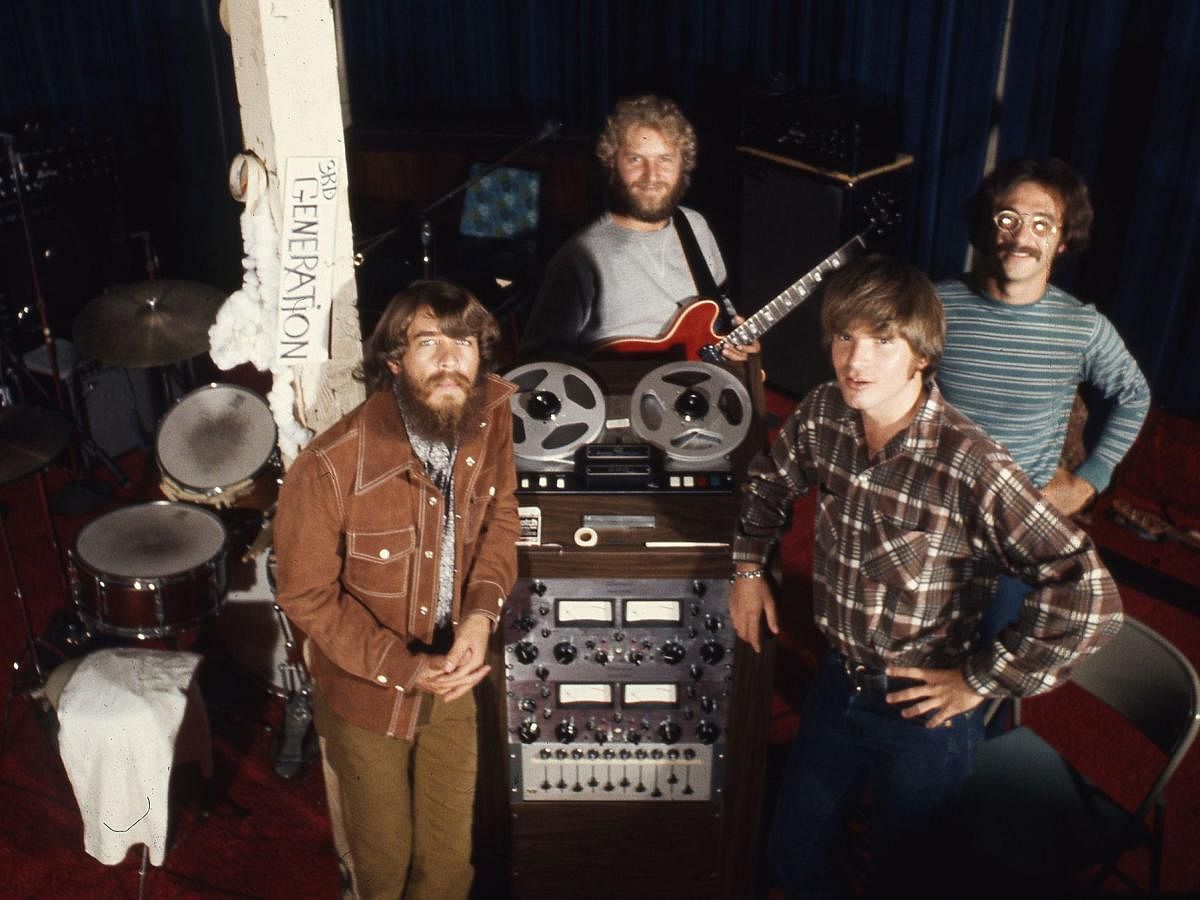
Fifty years after one of America’s and the world’s popular rock and roll bands, Creedence Clearwater Revival disbanded, their music continues to resonate with music lovers. Famously known as CCR, the band led by the immensely gifted John Fogerty, split in October 1972.
CCR comprised four musicians: song writer, singer and lead guitarist John Fogerty, his brother Tom on rhythm guitar, bassist Stu Cook, and drummer Doug Clifford. The quartet first came together as teenagers in 1959 in the San Francisco Bay area, calling themselves ‘The Blue Velvets’. Soon, they were signed to Fantasy Records and renamed Golliwogs. In 1969, when the band’s name changed to Creedence Clearwater Revival, they attained superstar status.
They stormed onto the charts with some infectious hits at a time when America was grappling with political and societal upheavals — the Vietnam War, the Civil Rights and Feminist Movements, the rock and hippies culture and drug abuse.
Industrious and prolific, CCR, in 1969 alone, brought out three LPs — Bayou Country, Green River and Willy and the Poor Boys. By the early 70s, they had a big list of hit singles such as ‘Have you ever seen the rain’, ‘Bad moon rising’ ‘Fortunate son’, ‘Green river’, ‘Lodi’, ‘Travelin band’, ‘Suzie Q’ and some others.
CCR holds the record for the most singles (five) to reach number two on the Billboard Hot 100 without ever scoring a number one single; as well as the most singles (nine) to reach
the top 10 without ever reaching number one.
What’s so remarkable about CCR’s enduring popularity? Why do their songs still populate the Rock airwaves and show up in films? Crucially, how did their music become a soundtrack to an era?
“Although they are a classic American band, their songs have a universal appeal,” says Grammy award winner and music composer Ricky Kej, a huge fan of CCR.
CCR’s simple, catchy songs, mostly built on traditional blues/rockabilly, spoke to everyone, no matter what their political leanings were. Credit must go to their leader John Fogerty, known for his lyrics, unique voice and superb guitar playing.
“CCR’s songs were simple, catchy and sing-able,” says Gerard Machado, the Bengaluru-based musician, who at age 10, learned to play all the songs from CCR’s Cosmo’s Factory album.
CCR’s swampy, country and raw but catchy music became a favourite of the US soldiers fighting a war in Vietnam. Songs such as ‘Fortunate Son’ and ‘Run Through the Jungle’ spoke directly to the soldiers.
CCR’s fans began growing worldwide and in 1969 and 1970, they outsold the Beatles. What made CCR endearingly unique was the quartet’s working class simplicity, with no pretences in attire or behaviour, eschewing drugs, hippies and psychedelic rockers of San Francisco.
Despite the quick success, relations among members had frayed over artistic and business decisions taken solely by their leader. Tom, who had had enough, resigned from CCR in 1971; the remaining continued as a trio.
Their final album Mardi Gras released in April 1972. It featured songs written by John, Cook and Clifford and each of them sang lead vocal on the songs they had written. The album was a flop, attracting much flak.
Still, the band went on a two-month US tour and less than six months later, on October 16, 1972, CCR officially announced its disbanding.
New lawsuits between the band members as well as against their former management deepened their animosities. The last straw was when CCR was inducted into the Rock and Roll Hall of Fame in 1993 when John refused to play with Cook and Clifford and played with an all-star band comprising Bruce Springsteen and Robbie Robertson.
Kej sums it up nicely, “They were such a progressive band and still serve as an inspiration for many bands worldwide that came after them.”